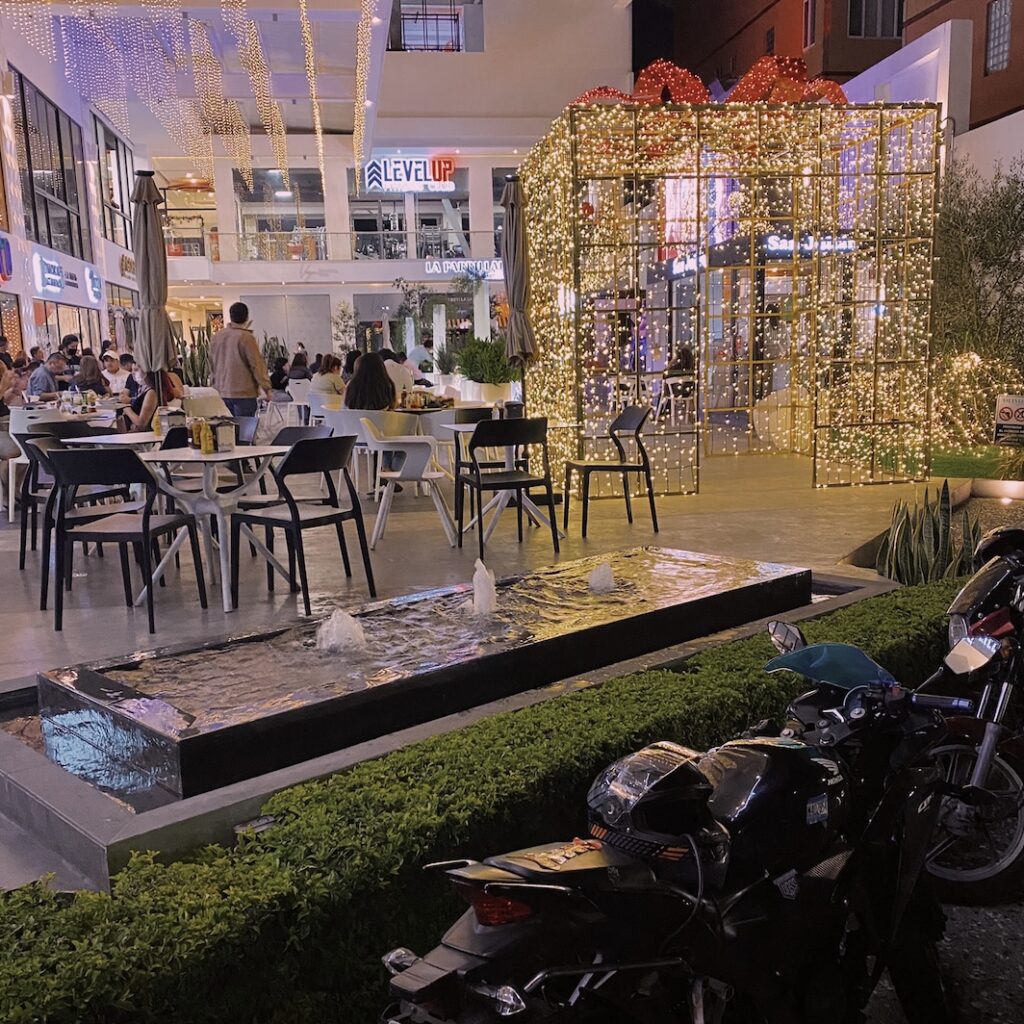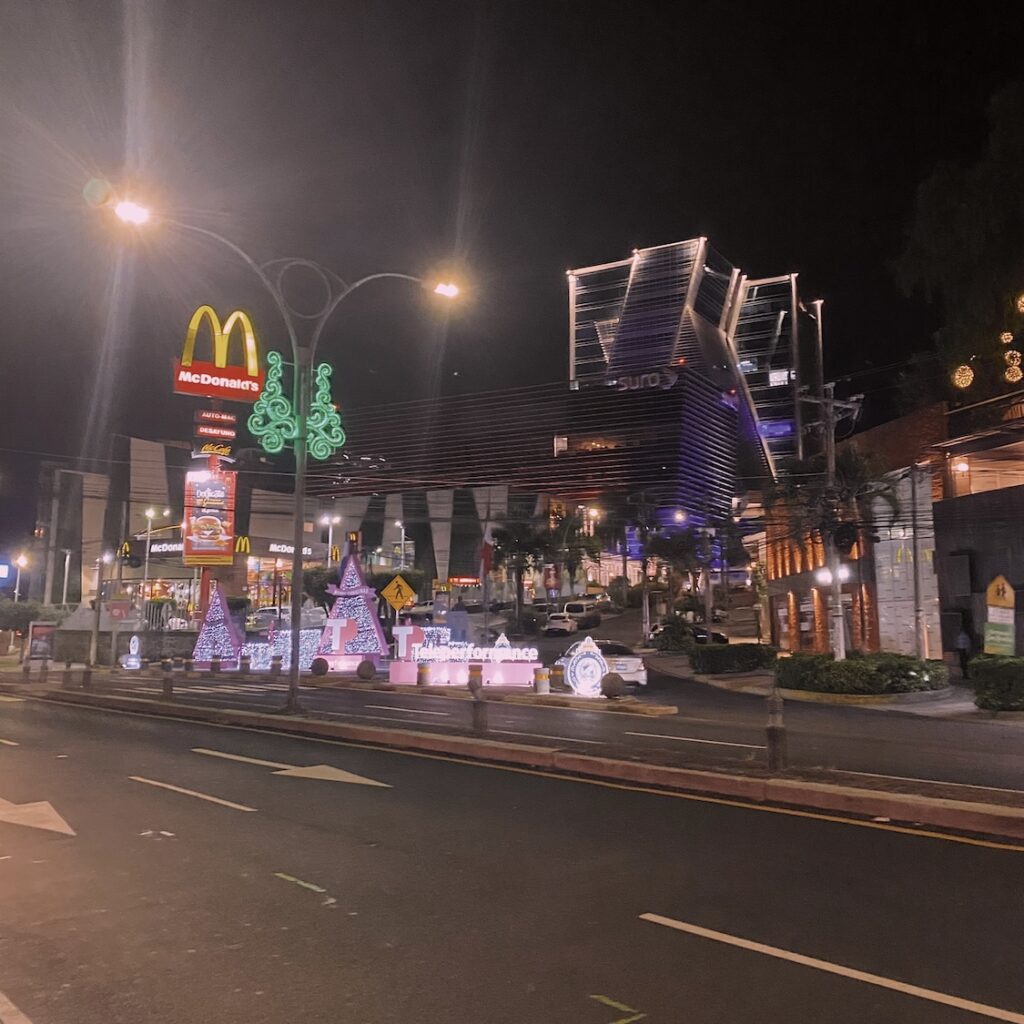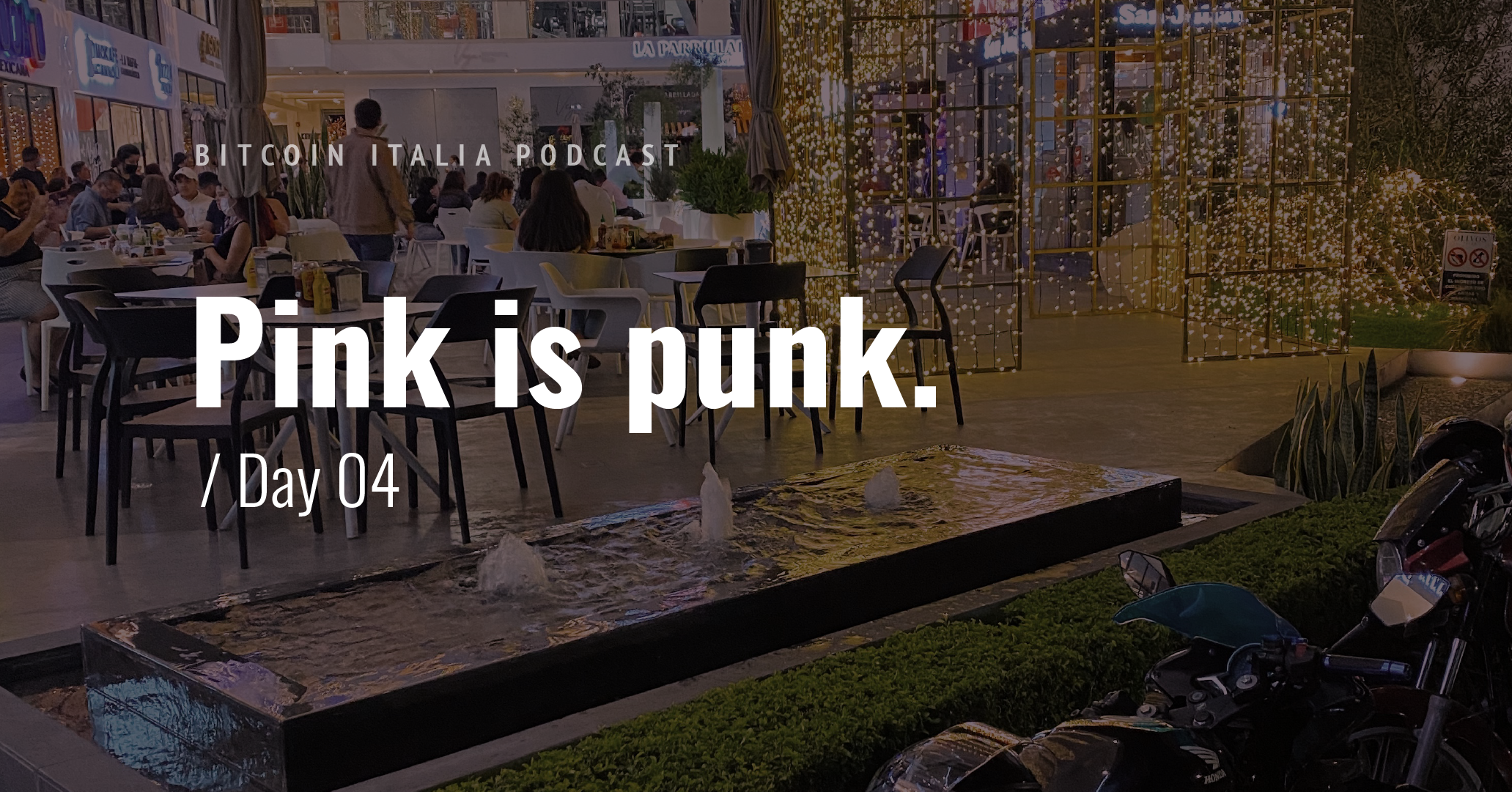

Among the toughest challenges we’ll face in this Salvadoran adventure, we’ve already figured out, there will definitely be finding where to sleep. For some incomprehensible reason the hotel industry doesn’t seem to have yet realized what an amazing opportunity Bitcoin is for them. From the beginning, we decided to never spend too much time in the same hotel or apartment, but try to move around as much as possible, in order to better grasp the various facets of the cities and society. In the past few days we have sent a series of emails asking different hotels if it was possible to pay for a room in bitcoin, but all the answers were always negative. The bulk of the accommodations however do not have their own website and you can only book through sites like Booking, which do not allow you to contact them in advance and only accept credit cards.
So it’s clear what to do: pick a destination and go door-to-door.
We decide to move to the Pink Zone, the more upscale area we talked about in yesterday’s diary, because it seems to be more Bitcoin friendly and there is a good density of hotels.
First, however, it is necessary to find a bitcoiner taxi driver.
We set off at a good pace, confident that we had a long day ahead of us, and find a cab stand not far away. Fridays are particularly chaotic in San Salvador and the streets are completely jammed with traffic. Around the corner we see a line of yellow cars parked. I start to ask, but the first driver tells me he doesn’t have the app. The second driver doesn’t seem to want to take us either, but he takes me to the station offices and spreads the word among his colleagues. A large crowd is created and soon a man with a smartphone in his hand approaches me. He has the app but has never used it. A younger colleague shows him how to do it but selects the usual standard BTC transaction. I show him how to select a Lightning one. I make the payment and cross my fingers. Chivo doesn’t blink an eye. Motionless. Blank. We go back to the screen with the list of transactions and refresh a few times. After about a minute the transaction arrives. Without a sound or a notification. We did it, today the Salvadoran state wallet, always inexplicably slow, seems to want to cooperate. Time enough to throw the backpacks in the trunk and our bitcoin-paid cab begins its run.
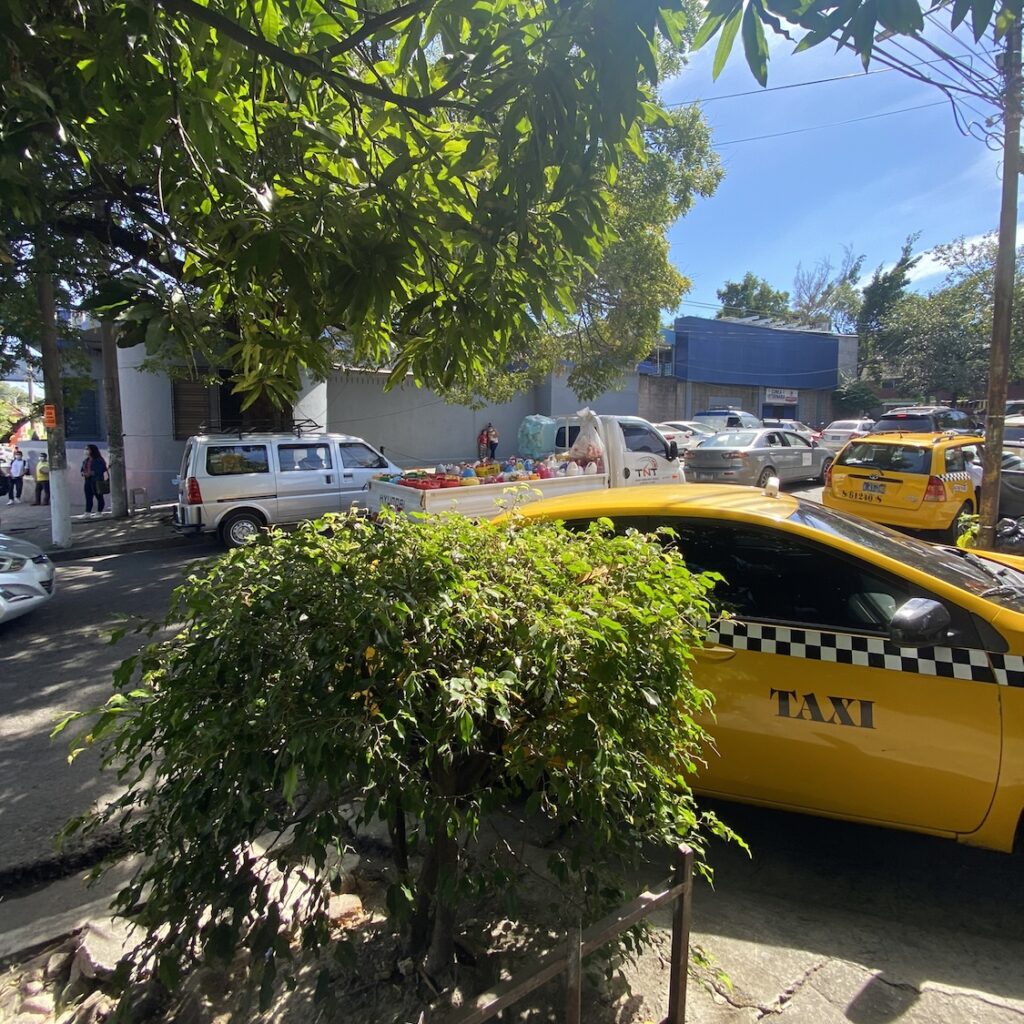

Raimondo, the cab driver, is jovial and in a chatty mood. He had never used his Chivo except to spend the thirty dollar bonus, but he was impressed by the ease with which we paid him.
“You should see a wallet Lightning with balls” – I think – but I don’t tell him. He’s a fan of Bukele, he seems more honest to him than previous presidents, all of whom have been accused of fraud and corruption, and he thinks he’s doing a good job. He didn’t know Bitcoin was legal currency only in his country and he seems proud of it.
Once in the Pink Zone, the transhumance begins. We go around several hotels, all beautiful, elegant and well maintained structures. Unfortunately, the answer is always the same: “We don’t accept them yet but we will very soon, we are working on it”. I’d like to tell them that if they give me thirty seconds I’ll equip them in no time and that it’s very easy, but I don’t feel like making a fuss. We start to get worried, when we come across a hotel that is not very visible from the road. It’s called Cinco. We go in and ask at the front desk. The lady who greets us initially seems bewildered. A room would be available but she has to ask the owner for payment. After a few minutes she puts me on the phone. Her name is Maria and she speaks excellent English, so our conversation can be casual. She asks me if she can just send me the QR code via Whatsapp. I say yes et voilà: we have a room. We were lucky because the hotel is beautiful. A lush oasis in the chaos of the city. We’ll be fine there.
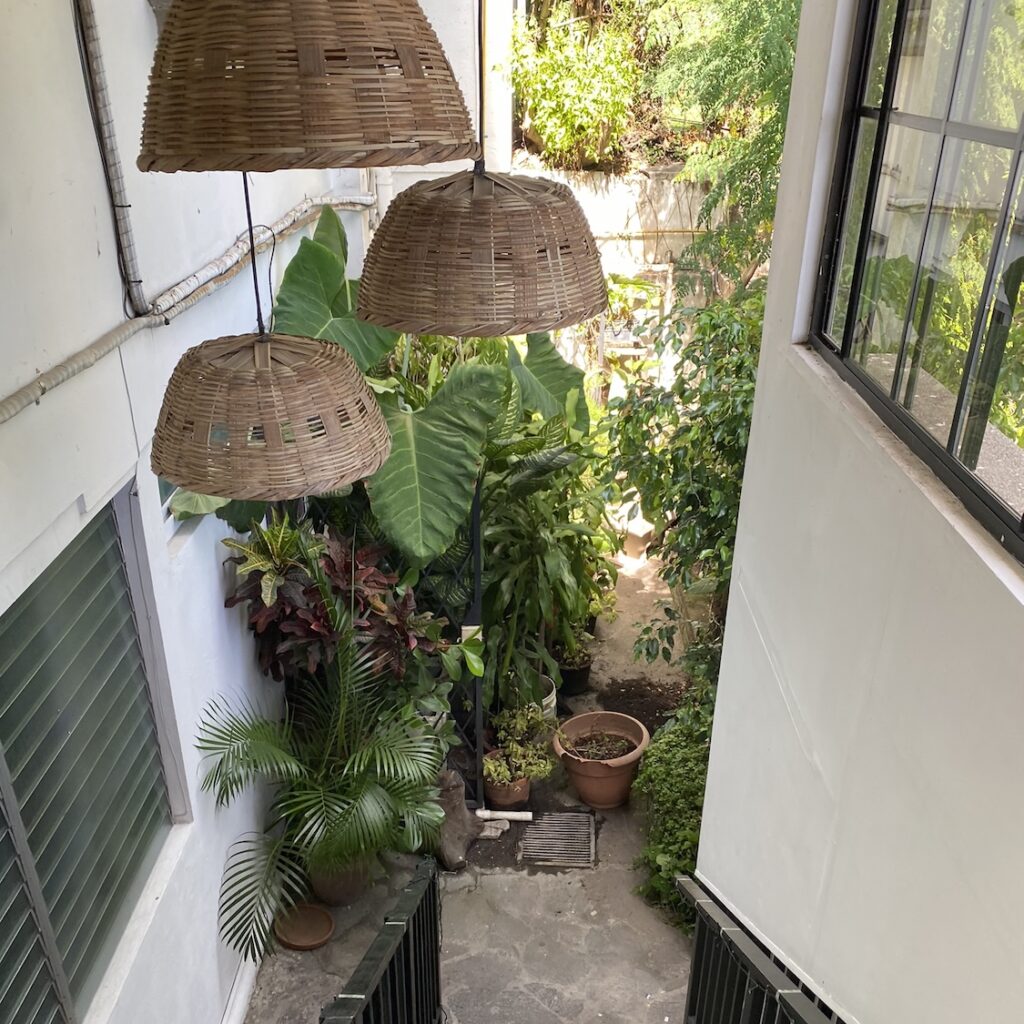
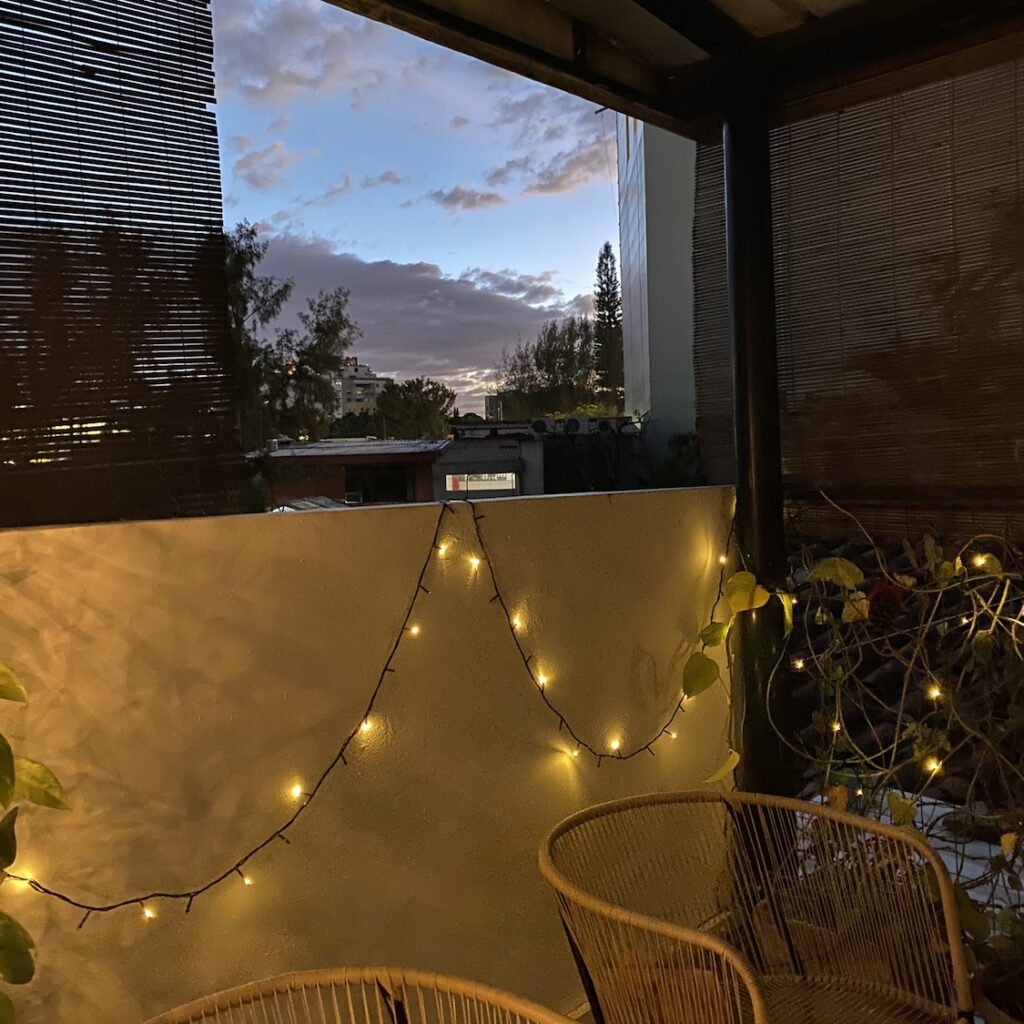
In the afternoon she contacts me to settle the account and we have a chance to chat a bit. She is genuinely interested in Bitcoin but we are only the second customers to choose it as a payment method. She says she will teach her staff how to use it because it seems like an opportunity. The interesting thing is that they told her she should use a different wallet than Chivo and she asks me to confirm. I explain to her about private keys and how Bukele’s wallet doesn’t actually give her ownership of her cryptocurrency and she seems impressed and convinced. She wants to elaborate.
Interestingly, information circulates better among the wealthier classes and is more accurate. Maria is an entrepreneur and knows her stuff, surely her circle of friends is like her. It is normal that they are the first to enjoy technological innovations, it has always been so, the first to own a car, a computer, a smartphone, they were all rich people. But this confirms the fact that if you really want Bitcoin to be an opportunity for an entire population, the less privileged need to be supported and educated with more care.
We go out in the Pink Zone in the evening. It is literally another city. The people are well dressed, the cars are elegant, the places are loud and luxurious. It’s all very glossy but honestly not very quaint. It feels like a small town in Southern California. We ask several clubs and restaurants but many of them do not accept Bitcoin. Not all rich people are so quick to understand, of course. The curious thing is that at the moment of paying the bill none of those who do accept it show up with Chivo. They all have different applications. Instant and perfectly working, as it should be.
That Chivo is turning out to be the poor man’s ballast is a suspicion that, the more days go by, the more it takes shape.
